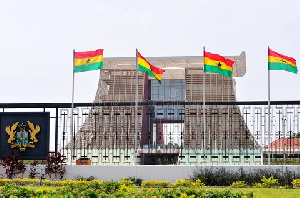Delayed lithium agreement puts mining prospects at risk

The discovery of lithium—a critical mineral in the global shift to green energy—positioned Ghana as a potential key player in the industry, promising a fresh revenue stream for the country’s resource-driven economy.
Beyond national economic gains, the project held immense local promise. Expectations soared for direct and indirect employment, royalty payments to its local business partner and corporate social investments that could uplift communities.
However, what started as a groundbreaking opportunity has now entered an uncertain phase due to delays in ratifying the lithium agreement in Parliament two years after the government signed it.
The stalled agreement: A risky delay
In a widely publicised move, the government signed what it called an “unprecedented mining agreement” with Barari DV Ghana Limited, a subsidiary of Australia’s Atlantic Lithium Limited. Officials touted it as a landmark deal that would set a new standard in Africa’s lithium sector.
According to the Natural Resource Governance Institute (NRGI), the deal exceeds Ghana’s legislated fiscal regime and offers a competitive edge over lithium producers in Australia, the Democratic Republic of Congo and Zimbabwe.
NRGI’s analysis estimated an average effective tax rate—government revenues as a share of mine profits—of 58 percent (excluding state equity), a strong indicator of the projected benefits to the nation.
However, 70 percent of these government revenues hinge on the profits Barari DV Ghana Limited reports, raising concerns about long-term fiscal stability.
Despite the government’s approval, the agreement has yet to be ratified by Parliament. With the dissolution of the 8th Parliament, the contract now faces further delays, as it must undergo fresh legislative scrutiny before taking legal effect.
Given that there is a new government in place, NRGI’s Africa Senior Programme Officer, Denis Gyeyir, in an interview with B&FT earlier in the year, cautioned that any attempt to renegotiate could undermine investor confidence and deter future investments.
Mr. Gyeyir stated that this is a crucial time for the new Minister of Lands and Natural Resources, who must decide whether to proceed with or reassess the current agreement.
Why delays matter: Economic risks at play
Policy experts have long warned of the risks tied to delaying the nation’s lithium production. Eliasu Ali, Policy Lead for Minerals and Mining at the Africa Centre for Energy Policy (ACEP), highlighted that lithium price volatility could significantly impact government revenues.
A study by ACEP found that a 10 percent change in lithium prices results in approximately a 27 percent change in government revenues, whereas similar changes in royalties, carried interest or corporate income tax rates have a much smaller impact.
In simpler terms, timing is everything—delays could mean Ghana enters the market when prices are low, missing out on peak profitability.
Recent global trends reinforce these fears. The lithium market is experiencing a sharp price decline, largely due to increased supply. Carboncredit.com reports that in February 2025, lithium carbonate CIF North Asia prices fell below US$10,000 per metric tonne, a drop of 4.5 percent to US$9,550/t—the lowest level since February 2021. Analysts predict further production cuts throughout 2025 as the market struggles to stabilise.
The primary driver of this downturn? Surging production from competing nations. In January 2025, Chile’s lithium exports jumped 22.8 percent compared to the previous month, flooding the market.
Meanwhile, new lithium mines in Mali—Bougouni and Goulamina—are set to add 40,528 metric tonnes of lithium carbonate equivalent (LCE) in 2025. Argentina’s Ganfeng Lithium Group also started production at the Mariana brine project, boosting Argentina’s role as the dominant producer in the Lithium Triangle.
Source: thebftonline.com





